Today, a saliva battle over plagiarism broke out between two "L2 giants" and also attracted the attention of the general public.
Polygon Zero expressed on Twitter that Matter Labs, the development company of zkSync, copied some of Polygon's open-source code without declaration. However, zkSync responded that only 5% came from Polygon Zero, with proper citation, and criticized the other party for lack of open-source spirit.
Currently, this event is still fermenting, and just now, a third-party force has joined the battle. Manta Network accused that the so-called "plagiarized" code section was originally created by Manta employees.
Boojum Copying Plonky 2?
For zk rollup, the zero-knowledge proof system is crucial and also a challenging part. The development of this part tests the R&D capabilities of various vendors. Polygon's subsidiary, Polygon Zero, has developed its own zero-knowledge proof system called Plonky 2 and Starky.
In the introduction by the development team, Plonky 2 is described as the "fastest solution to date", "100 times faster than existing alternatives", and compatible with Ethereum. It combines the advantages of PLONK and FRI, offering fast proofs and a trustless setup. It also combines the advantages of SNARKs, supporting recursion and low verification costs on Ethereum.
This system was officially released as early as January 2022 and was open-sourced in August of the same year.
In July of this year, zkSync also launched its own proof system. This proof system, named Boojum, has many features, including "world-class proof performance" and lower hardware requirements. zkSync stated that Boojum can run on consumer-grade GPUs with only 16 GB of GPU RAM.
Interestingly, last night, Polygon Zero published a blog post accusing Boojum of plagiarism.
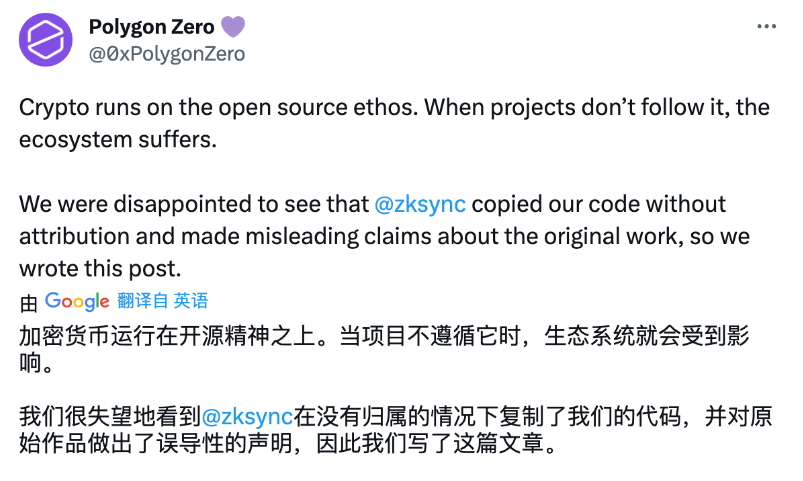
Specifically, Polygon Zero accuses zkSync of directly copying their open source code without stating the source in accordance with the copyright statement.
It should be noted that although many projects open source their code, this does not mean that third parties can freely use these open source codes. Open source projects typically include copyright statements when they are open sourced.
Plonky 2 is using the open source licenses of Apache License V2 and MIT License.
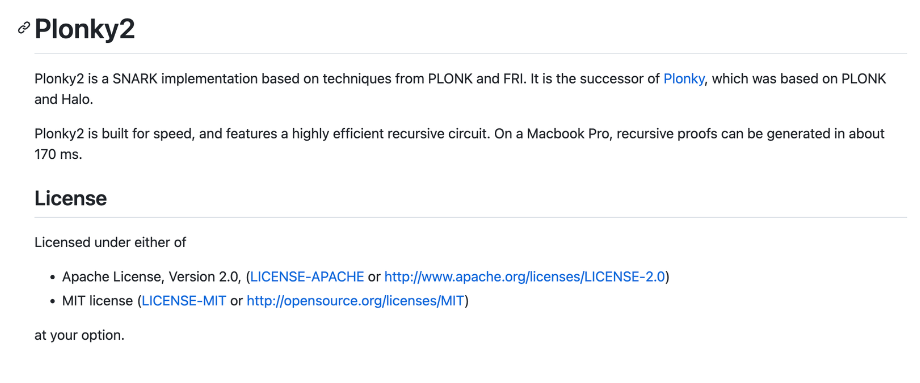
If a third party wants to utilize these codes, they need to comply with the copyright agreement regulations.
In this specific dispute, the open source license of Apache requires that derivative codes modified from codes following this agreement include the original author's copyright statement and other descriptions. The MIT License also stipulates the need to include the original author's information.
So, did zkSync actually use Plonky 2's codes? Polygon presents the following evidence.
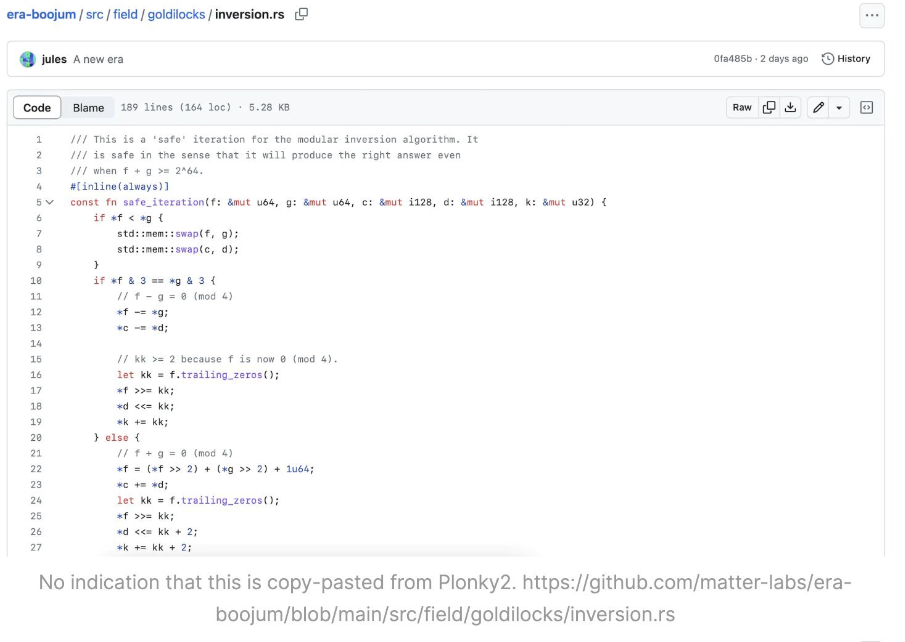
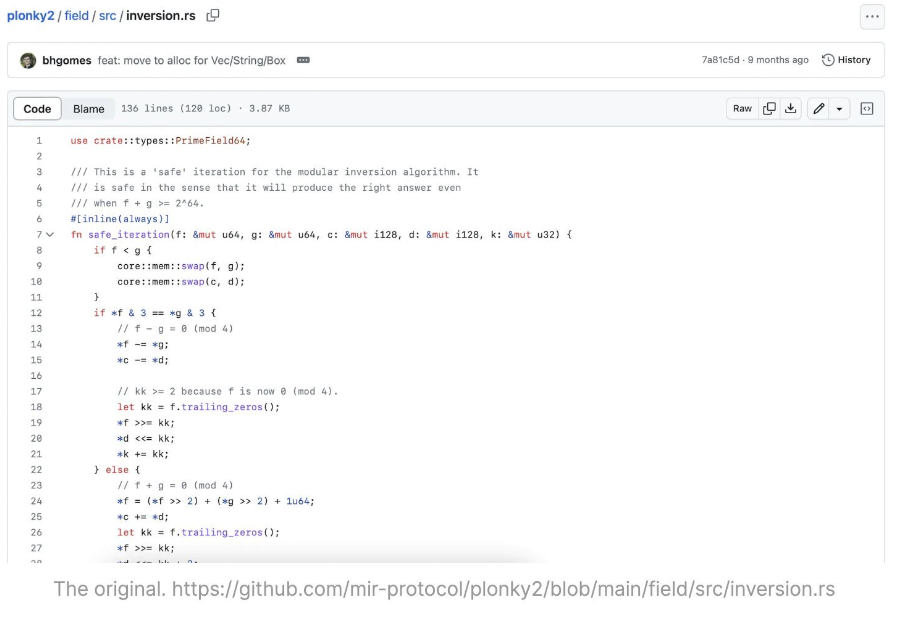
There is no doubt that these two pieces of code are exactly the same. This also confirms the allegations made by Polygon.
In addition to the blatant code copying, Polygon also accuses zkSync of plagiarizing (or perhaps borrowing from?) its overall design ideas. Polygon believes that Boojum and Plonky 2 are very similar. They both use parallel repetition strategies to enhance the soundness of small domains, and they both use similar custom gates for efficient arithmetic recursive verifications. Furthermore, zkSync's Poseidon's MDS matrix and parameters are also the same as those discovered by Polygon Zero team.
Polygon also accuses Matter Labs of exaggerating the promotion of Boojum. In the introduction of Boojum, it claims that this system is 10 times faster than Plonky 2. Polygon sarcastically remarks, "I'm curious as to how this was achieved since the key performance part of the code was directly copied from Plonky 2."
Who is violating the spirit of open source?
Matter Labs has responded to this incident. Its CEO Alex Gluchowski posted a thread on Twitter to explain the plagiarism incident.
Regarding the accusation of direct copying, only 5% of the Boojum code is based on Plonky 2, and there is also a copyright statement as they provide a clear indication in the first line of the main module file.

Boojum Code
And in the Readme file, they also indicate information about Plonky 2.

Boojum's readme file
Gluchowski said, "The first line of our module highlights Plonky 2. Will there be any other prominent features besides the first line?"
Regarding the technical plagiarism, Gluchowski explains that Boojum and Plonky 2 are both implemented by Redshift. RedShift was introduced by Matter Labs long before the release of the Plonky 2 paper three years ago.
As for performance, they state that their performance parameters are based on neutral third-party benchmarks. Performance is tested using SHA 256, and the test results are completely impartial.
This war of words based on accusations of plagiarism has also reached a higher level. Both sides have wielded the baton of values to accuse each other. Gluchowski openly agrees with the Polygon Zero team's support for the open-source view - "sustainably building software openly benefits everyone."
He states that open-source means sincere collaboration. What Polygon has done is not in the spirit of the open-source movement. "If you don't want others to use parts of your code, perhaps open-source is not for you?"
Drama Climax: Both Sides Accused of Plagiarism?
In the scaling war of Ethereum, zkEVM is hailed as the holy grail of scalability. zkEVM has a crucial impact on developers' experience in contract deployment, and due to Ethereum's initial design not considering ZK-friendliness, it means that zero-knowledge proofs require a significant amount of resources for computation.
Currently, the entire zkEVM market is still in the early stages. Developing EVM-compatible ZK Rollups is extremely challenging, making it a fiercely competitive field for developers.
Earlier this year, Mihailo Bjelic from Polygon had heated discussions with Alex Gluchowski from Matter Labs on technical issues of zkSync. This to some extent resulted in both Polygon and Matter Labs being eager to launch the first widely usable zkEVM, which might have triggered this plagiarism controversy.
As the situation continues to escalate, the war of words intensifies, and both sides stick to their words.
Uri Kolodny, co-founder of Starkware, another competitor of ZK-Rollup, expressed his amusement and said, "This is not the first time we've seen code plagiarism. I bet an ice cream that it won't be the last."
Louis Guthmann, ecosystem lead at Starkware, added, "The accusations (by Polygon Zero) are serious. More importantly, clear and honest code attribution is the essence of open-source."
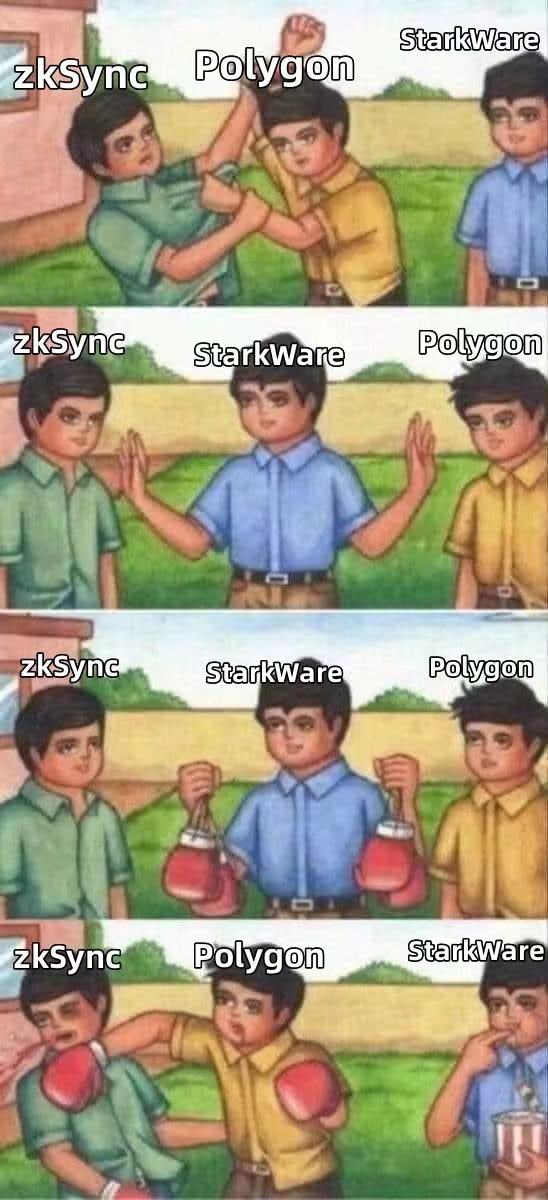
Just as the two sides were sticking to their words, a third party force also joined the battlefield.
Just now, the Manta Network Chinese community tweeted that Polygon Labs claimed zkSync used their code without attribution, but in fact, this code was originally created by Brandon at Manta Network. This has further intensified the attention to the event.
Who actually wrote this code? Currently, the situation has not yet concluded, and Odaily will continue to follow up and report.